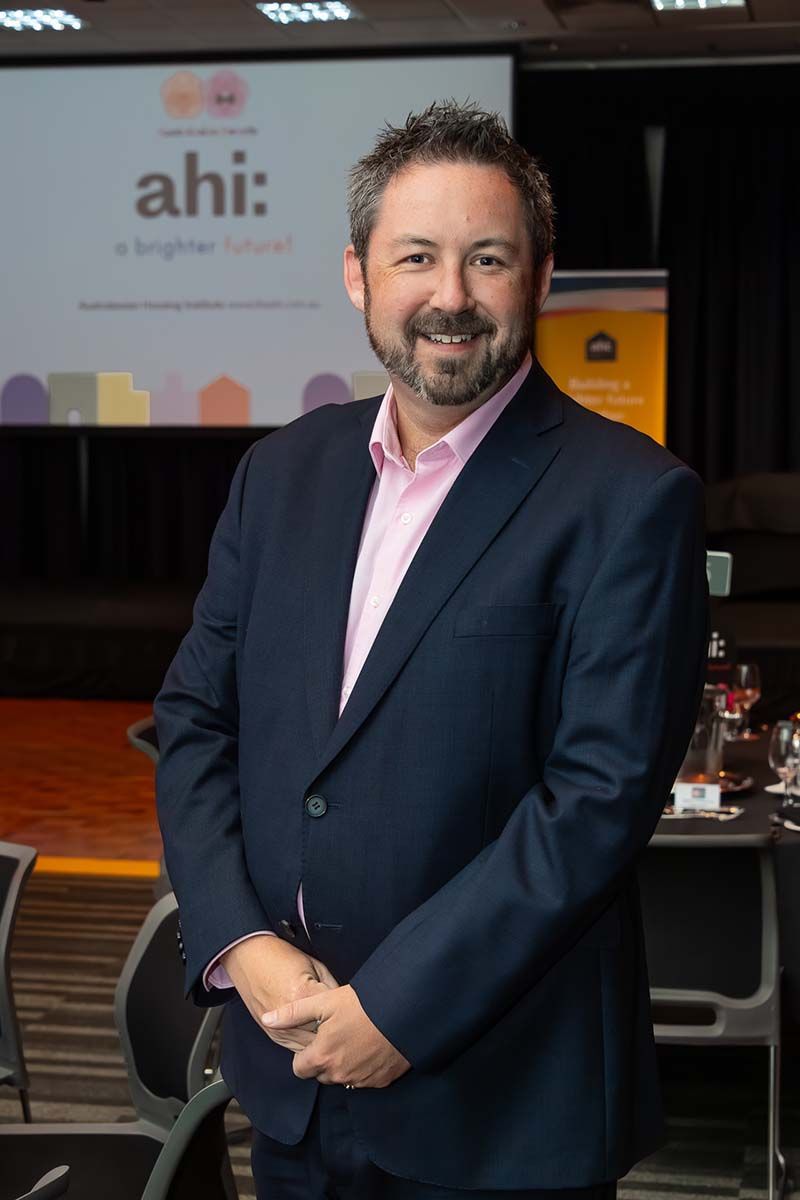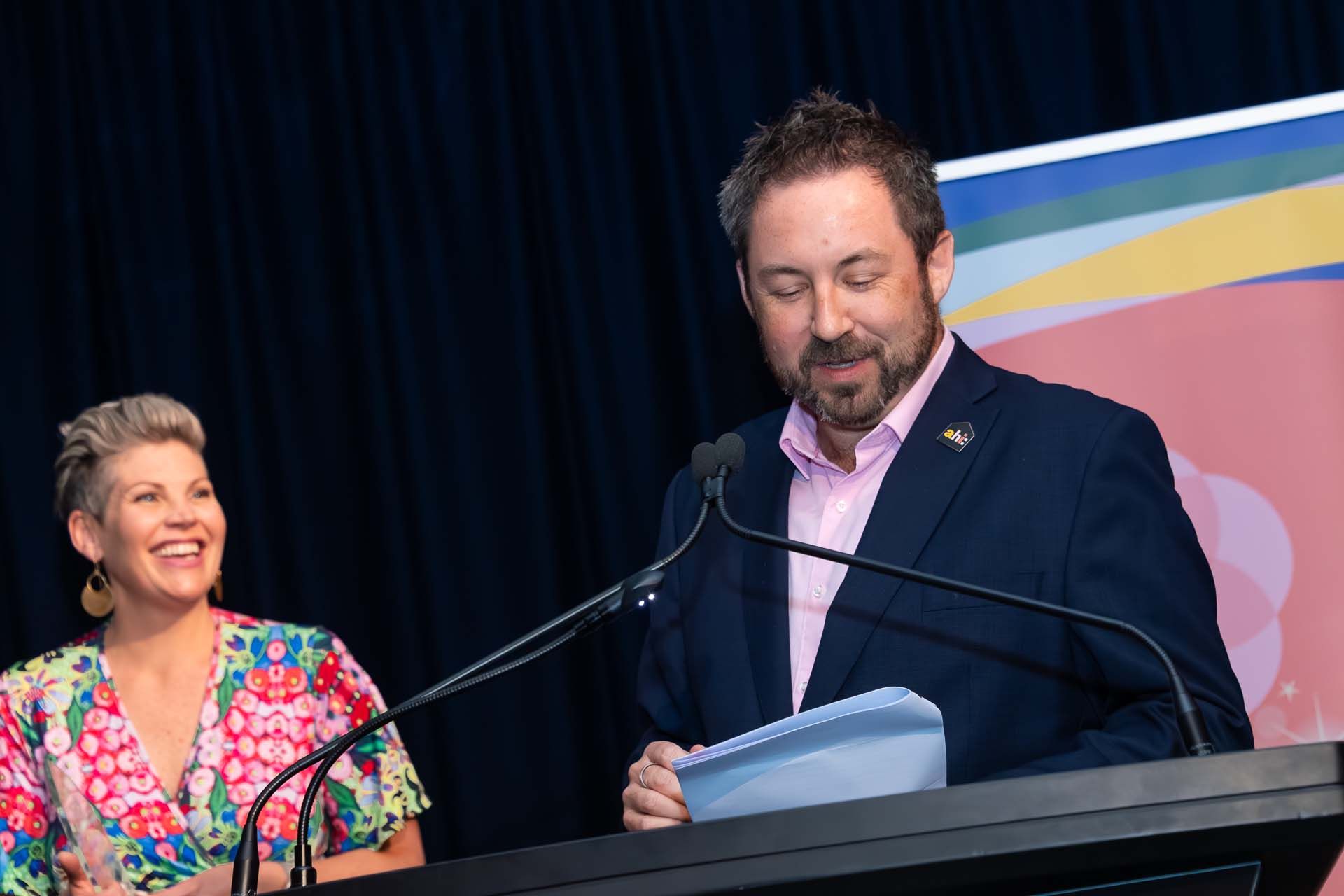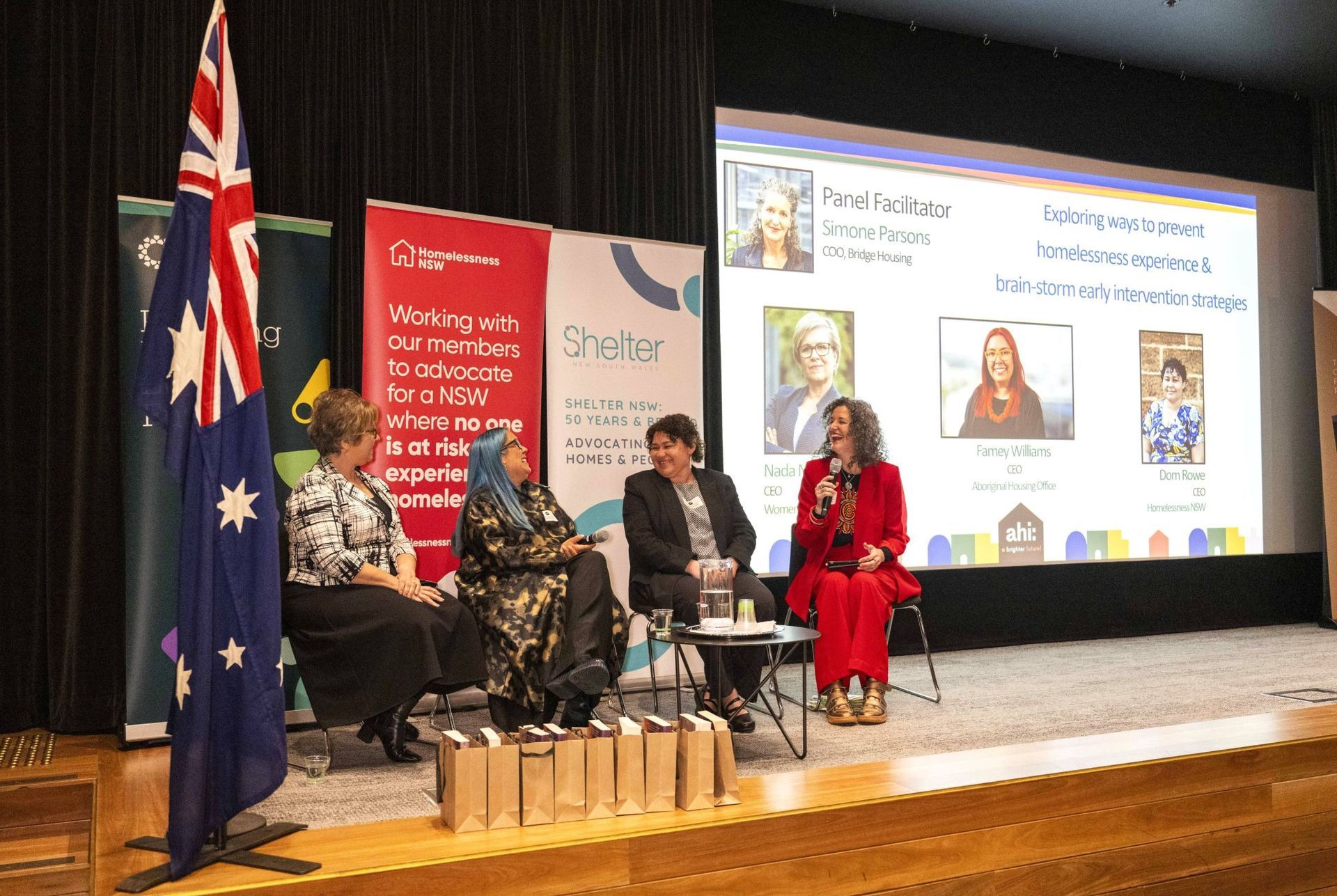As the calendar flips to 2024, the ahi: welcomes a new President for a volunteer tenure of four years. For those who don’t already know
Sean Kelly, or would like to know him better, here’s his story along with his ambitions for the Institute in both Australia and Aotearoa New Zealand.
"Did I want to do this? Probably not when I was little. Do I love doing it? Absolutely."
“I've got aunts and uncles who live in Housing Executive properties and social housing properties. My Mum currently lives in a community housing property, so community housing has been a key part of my life either directly or indirectly. Did I want to do this? Probably not when I was little. Do I love doing it? Absolutely.”
On reflection, the time Sean spent working and living in London was a life-defining experience.
“I worked in Notting Hill, which people think is really affluent—and parts of it are—but there's a lot of poverty there as well. I worked in North Kensington, what used to be called the North Kensington Estate, just off Portobello Road. It had people who arrived in that area in the ‘50s from the Caribbean, people who’d arrived from the Horn of Africa in the ‘90s, and people from India and Pakistan. It was such a cultural melting pot.”
“Seeing these people every day and building up a relationship with them over a number of years was such a wonderful experience that really helped shape my desire to work in something that's beyond the house, the community. How do we build those communities with social housing? How do we get people secure housing? How do we make a community sustainable, desirable?”
While doing the hard yards during the day, his evenings were spent enjoying London’s nightlife and ‘cultural’ activities that defined Tony Blair’s Britain in the ‘90s. As he candidly concedes, “You’re in your early to mid-20s, living in a city like London… I mean, what's not to like? You can see so much, there was so much to do and experience.”
Away from home himself, although not exactly saddled with the tyranny of distance, most of Sean’s social circle were 20-somethings backpacking their way through England and Europe, and making the most of what comes with travelling the world. It was also how he met his now wife and found his way to Australian shores.
“I played rugby for a club in London where most of its playing group were made up of people who weren't from London. We had a lot of Kiwis, a lot of Aussies, South Africans and a couple of Irish fellows,” he details. “Even the English players weren’t from London – they were from the north of England or the west country or somewhere outside of London. So, we sort of became our own family at that point.”
"I hung around with the Australians a lot; they have a very similar mentality, [and] sense of humour [to the Irish]."
“I hung around with the Australians a lot; they have a very similar mentality, [and] sense of humour [to the Irish],” he laughs. “And circulating in this group, I ended up meeting an Australian lady who appeared to be the only one without a European passport, so she had to head back home. I followed her on a working holiday visa in 2006 and haven't gone back.”
In stepping into the role of ahi: President, Sean’s effusive in his praise for the achievements of his predecessor, Jamie Muchall: “The work that Jamie did in the last couple of years has been absolutely outstanding, and he's put us in a really good position financially and culturally. I think, as an organisation, we've got a really good culture, and I want to maintain that and build on that.”
Sean is also focused on understanding what ahi: members need from the organisation through sustained engagement. He’s passionate about defining the organisation as the voice, not of the housing industry but for the professionals who work in it.
“We are not a community housing industry association – we're not CHIA. We are a membership organisation for the people who work in social and affordable housing,” he emphatically states. “And we have a voice in that discussion around how we do what we do – not necessarily around how government programs are funded or set up, but how do we, as individuals and as professionals, respond to the changing policy landscape.”
For the ahi: in Australia, Sean forecasts the Housing Accord, the Housing Affordability Future Fund and different state and territory government strategies as having a big impact. For Aotearoa New Zealand members, the change of government in New Zealand will also have enormous ramifications.
“How can the ahi: support delivering their social and affordable housing? What does that look like, and how do we support our members into delivering the best outcomes for the people that live in the houses that we look after?”
Sean goes on to say the ahi: needs to be seen as an authoritative voice within the range of professional bodies. He talks about working with architects, urban planners, the urban development Institutes, Master Builders and finance as all being of paramount importance: “We need them to work with us to deliver the things that we need to deliver.”
"Working across sectors in those allied and aligned industries is something I think we'll need to be focusing on over the next couple of years."
“We can be fantastic tenancy managers, and property managers, and asset managers, but if we're not working with architects and finance people and planners and builders and developers, then we're not going to be able to achieve all the things that we want to achieve,” he expounds. “So, working across sectors in those allied and aligned industries is something I think we'll need to be focusing on over the next couple of years.”
Sean also believes that how housing workers respond to new programs and changes will be another major challenge across the industry: “Obviously, in Australia, we’re responding to the Housing Australia Future Fund, and the various state and territory programs that are out there but, as I mentioned before, the work that will be happening in New Zealand with the change of government means the housing industry will need to respond to that.”
“In New Zealand, the Nationals traditionally focus more on investment into community housing rather than public housing, acknowledging they target broadly the same cohort of people – but what does that mean for our community housing members? Our members are employed by community housing organisations in New Zealand and how do they respond to that? And, if we overlay those questions with the cultural housing solution that we will need to start to drive through – whether that's in New Zealand, in the Northern Territory and central Australia as well – where you're 11 hours’ drive and 700 kilometres from the nearest significant large town, those are really challenging areas to deliver housing in.”
“Having worked across regional and metropolitan areas in big cities, while there are some commonalities in them, they’re very different scenarios and very different environments to deliver housing into. So, it's up to us at the ahi: to support that as best we can.”
With an influx of around 50,000 homes slated for delivery in Australia in the coming years, Sean believes it’s important for the ahi: to continue advocating for the industry, and to welcome new member organisations without – as he describes it – “losing the sense of what makes the ahi: what it is.”
“We have to make sure we’re able to support our members as individuals and also support our members' employers to make sure they're recruiting and training people in the skills they need to deliver on the housing needed across Australia and across New Zealand. So, for me, that's the biggest challenge our industry faces as a whole.”
With all these challenges looming on the horizon, Sean credits the support of his colleagues and family as integral in enabling him to fulfil his role as ahi: President.
“The amount of support you need to do this kind of work is immense. I really do love what I do. I'm really, really fortunate and I'm really lucky that I work in an industry of passionate people who also love what they do, but we just wouldn't be able to do it without our friends and family. It's a hard enough job to do but, if you don't have that support at home, it's an impossible job to do. So yeah, for me, the support that I get from them is everything.”
“We really do some brilliant work, and I love the career that I've had, and I love the job that I do. I want to bring that to as many people as I can,” Sean concludes. “There are jobs that have impacts on people's lives, and I'm not smart enough to do a lot of them. I'm not smart enough to be a doctor, I'm not smart enough to be a lawyer necessarily, but to do a job where you have such an impact on people's lives is a real privilege.”








